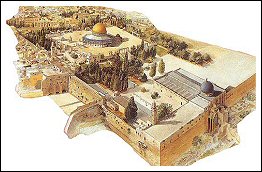
Tallha Abdulrazaq | Aug 18, 2011 | War Journal
Early today, several gunmen launched an attack from across the Egyptian side of the Egypt-Israel border. Striking from the Sinai, the attackers managed to attack the Israeli coastal town of Eilat with small arms, mortars and anti-tank rockets. Although details of the attack are still sketchy at best, Israel has reported 7 fatalities and some 29 injuries and is pinpointing the source as Gaza.
But how did Israel come up with this conclusion? As soon as I heard the news I was on Twitter analysing the various feeds and checking news websites from Haaretz to Aljazeera, and even the BBC and CNN. So far as I could tell, the identities of the attackers were completely unconfirmed by anyone, nor had any group come forward to claim this quite successful attack on Israel.
The Israeli claim that the source of all this violence stems from Gaza is perhaps a vague accusation, intentionally ambiguous so as to make people instantly assume the Hamas government in power in the Strip. The source could very well be Gaza, though it is highly unlikely to be Hamas or a faction from within, but it might be a group external to the enclave who are disgusted by the continuing illegal siege of Gaza and decided to mount an attack although this is also unlikely.
What many have failed to notice, even when I bombarded them on my Twitter account, is that Israel essentially controls the Sinai in its entirety. Many may read this, particularly Egyptians, and say, “But didn’t Egypt win back the Sinai after the 1973 Yom Kippur War?”
On the surface, they did, and this is exactly the kind of PR campaign that then Egyptian president, Anwar Sadat, wanted his population to believe. The facts on the ground tell a different story. At the end of the 1973 war, the Egyptian Third Army was encircled, cut off and would have been annihilated where it not more useful for the Israelis to keep them as a bargaining chip. Also, Israel threatened Cairo itself. Once the peace treaties were signed years later, Sadat received nominal control over the Sinai to increase his political credibility, and Israel got to safely withdraw costly forces from a strategic location. The price was that not even the Egyptian Army is allowed to move units into the Sinai to this day without Israel’s knowledge or permission.
Apart from scant border patrol forces, the Egyptians have no real military presence in the Sinai at all, and since ousted Egyptian president Hosni Mubarak came into power, the Egyptian government was complicit in most Israeli activity in the region, most visibly and recently being the underground barrier to prevent the Gazan tunnel economy. How did the Israelis maintain a watch on the Sinai and Gaza without its own troops and without a major Egyptian force in the region? The answer is via the use of local Bedouin tribes, armed and paid to keep the Palestinians in check without being a major threat themselves.
Since the ousting of Mubarak and the hopeful, yet slow, onset of democracy in Egypt, the Egyptian government has distanced itself from Israel somewhat. It has opened the Rafah border crossing (though I must stress that they have not opened it completely as is frequently misunderstood in the media) and it is trying to distance itself from overtly supporting Israeli measures against Gaza without antagonising the Zionist state.
This has meant that the Bedouin’s that Israel and Egypt essentially allowed to police the Sinai expanse have not been having such a profitable time as before. As a result of this, they might have attempted to antagonise the Egyptian military government and force it into an uncomfortable situation by attacking gas lines as has occurred recently, and by also possibly perpetrating the Eilat attacks. It is also possible that Israel, who would benefit from further instability, allowed this attack to happen or even encouraged it. After all, Israeli border and aerial surveillance is extensive, and one might be forgiven if he found it hard to believe that Israel did not see a team of men armed with mortars coming.
Israel benefits in a multitude of ways. For one, Egypt is no longer a certain ally as it used to be in the days of Egypt’s despotic rule, personified in Mubarak himself. Although the Egyptian military government has not shown any overt hostile action towards Israel and is unlikely to do so, Israel knows that if real democracy takes a hold of Egypt they are unlikely to benefit from this strategically. Many Egyptians are already calling for the scrapping or revision of the peace treaty between the two countries. Now that an attack has been perpetrated from across the Egyptian Sinai border, Israel will use that as an excuse to bolster military units in the Sinai area under the guise of national security. Indeed, Israeli officials have already commented on this need.
By blaming the source of this violence on Gaza, specifically Hamas, Israel can gain some diplomatic leverage as it is concerned about what will happen this September when Palestinian statehood gets inevitably vetoed by the US. It may not be officially recognised, but this action will finally put the nightmare of the two state solution to bed, and Israel has been relying on that diplomatic card to provide them and their collaborators in the PA with credibility for decades. If the blame is laid at the door of the Palestinians, then Israel can use that as proof that the UN bid and the Eilat attack were just a Palestinian effort to derail the peace process.
Leading on from the above point, Israel will also benefit from blaming the Palestinians by increasing their military attacks on the Gaza Strip. Indeed, it may not be too difficult to surmise that Israel is keen on significantly weakening Palestinian resistance and so therefore will now use the Eilat incident as one piece of justification in building up a case for a second act on the tragedy that was Operational Cast Lead.
Israel can now justify increasing protection of its borders from an Egypt it is uncertain about, divert diplomatic attention away from the Palestinians and their right to any state whatsoever, and also it can strike at its enemies and punish the Palestinian and Gazan population collectively for not bowing to their Israeli overlord before a popular reaction in Egypt will force the government there to act. A sweet bit of icing on this cake is that it may even detract attention in domestic Israeli affairs from the so-called “J-14” protests, and refocus all that public rage back onto the Arab enemy.
All in all, it is clear to see who benefits the most from the Eilat attacks. Certainly not Hamas who has publicly denied any connection to this attack, and if they did it would stand to reason that they would be more than happy to claim it for themselves as they have done hundreds of times before to affirm themselves in their position as the only Palestinian faction who really fights Israel. Instead, the only real beneficiary seems to be the apparent victim itself; Israel.
Like This Article? Please help fund my postgraduate studies HERE Every little helps! Thank you!

 August 18, 2011
August 18, 2011 
































Comments are closed.